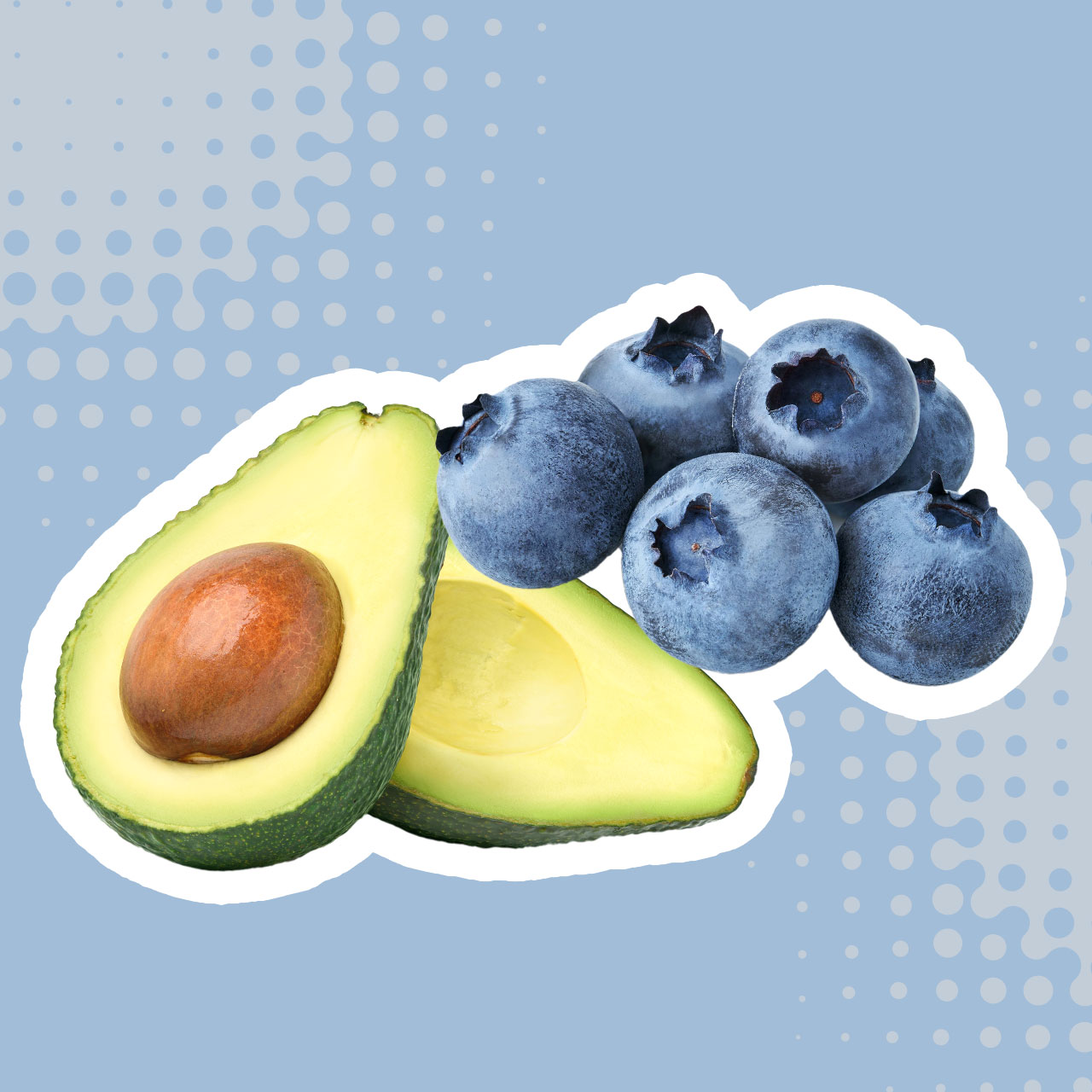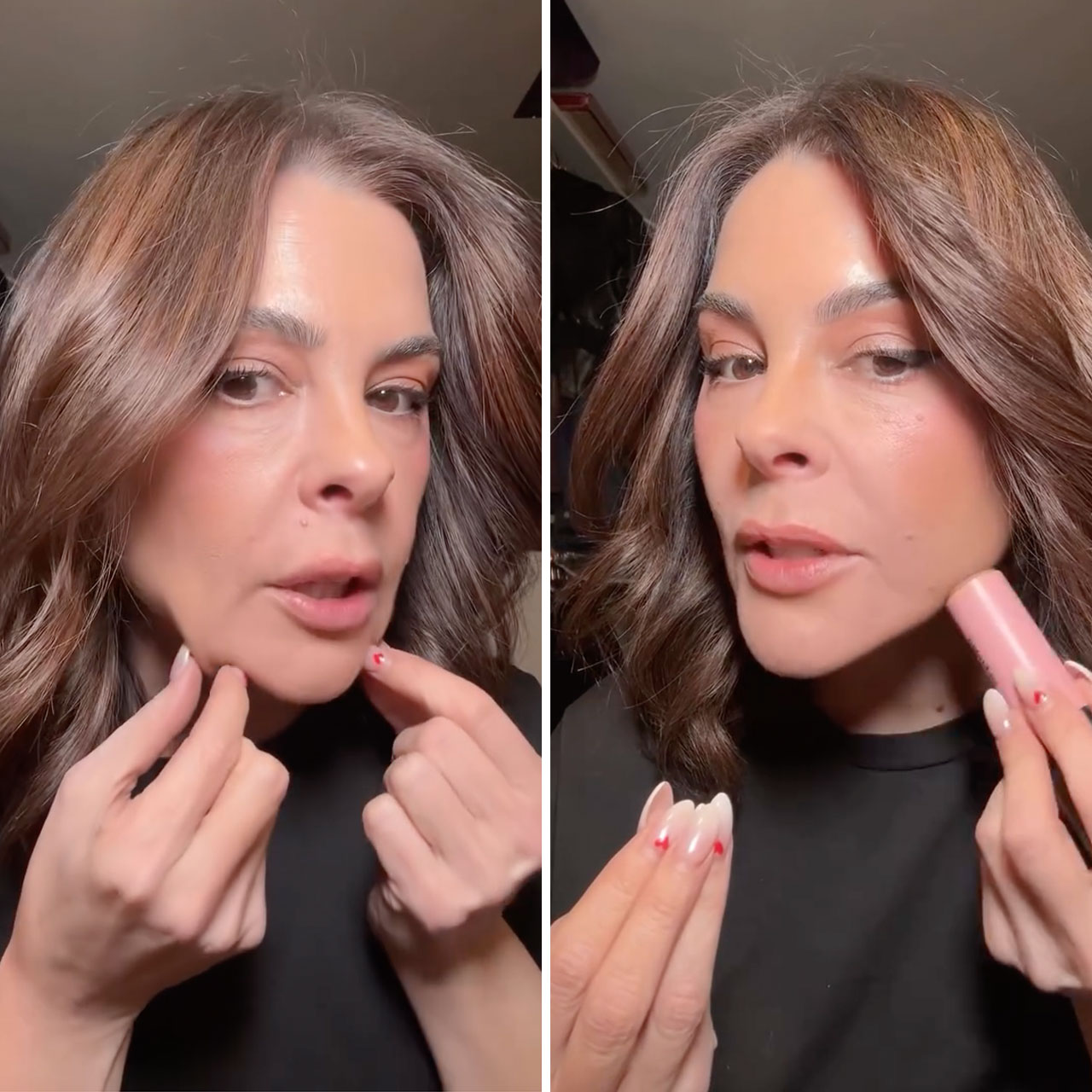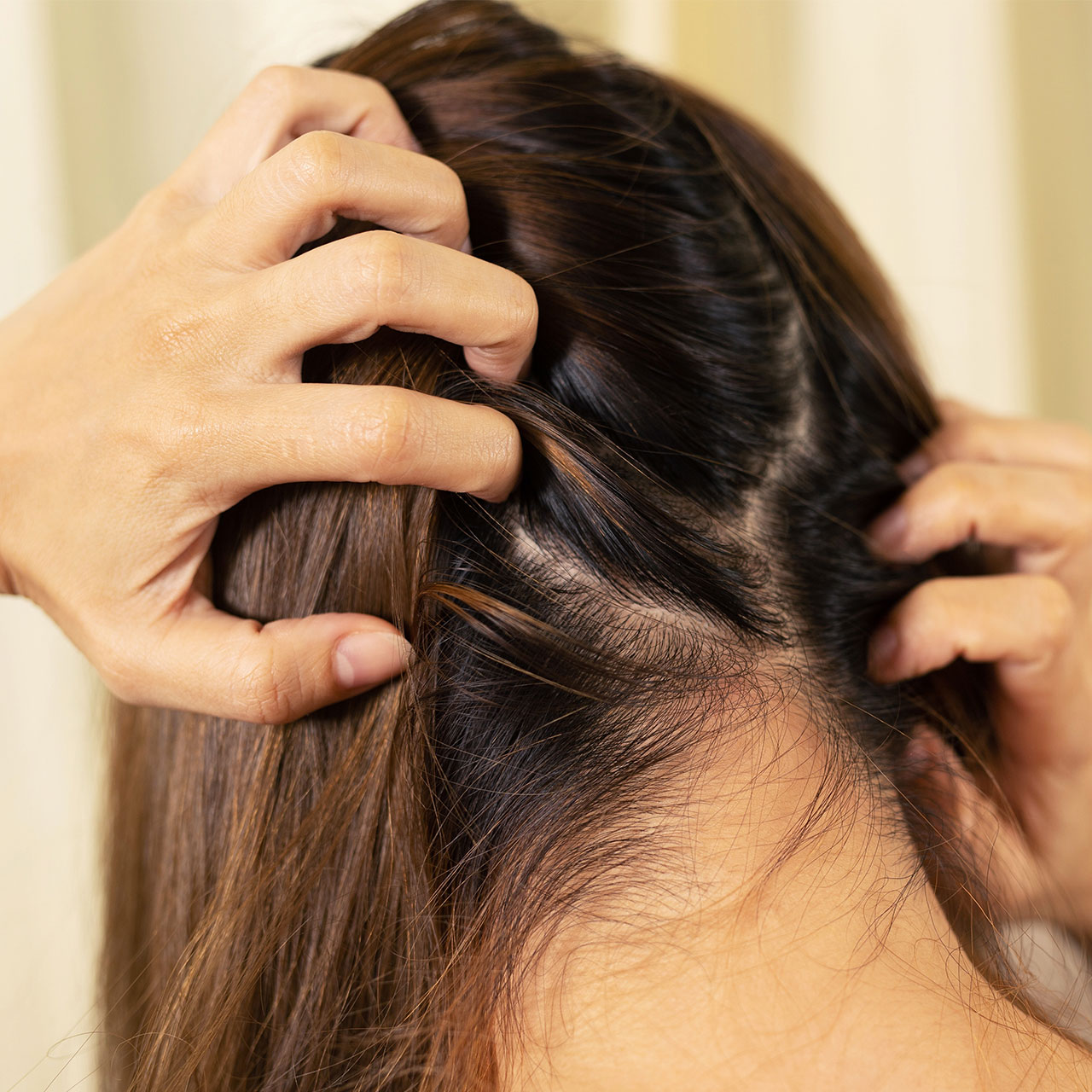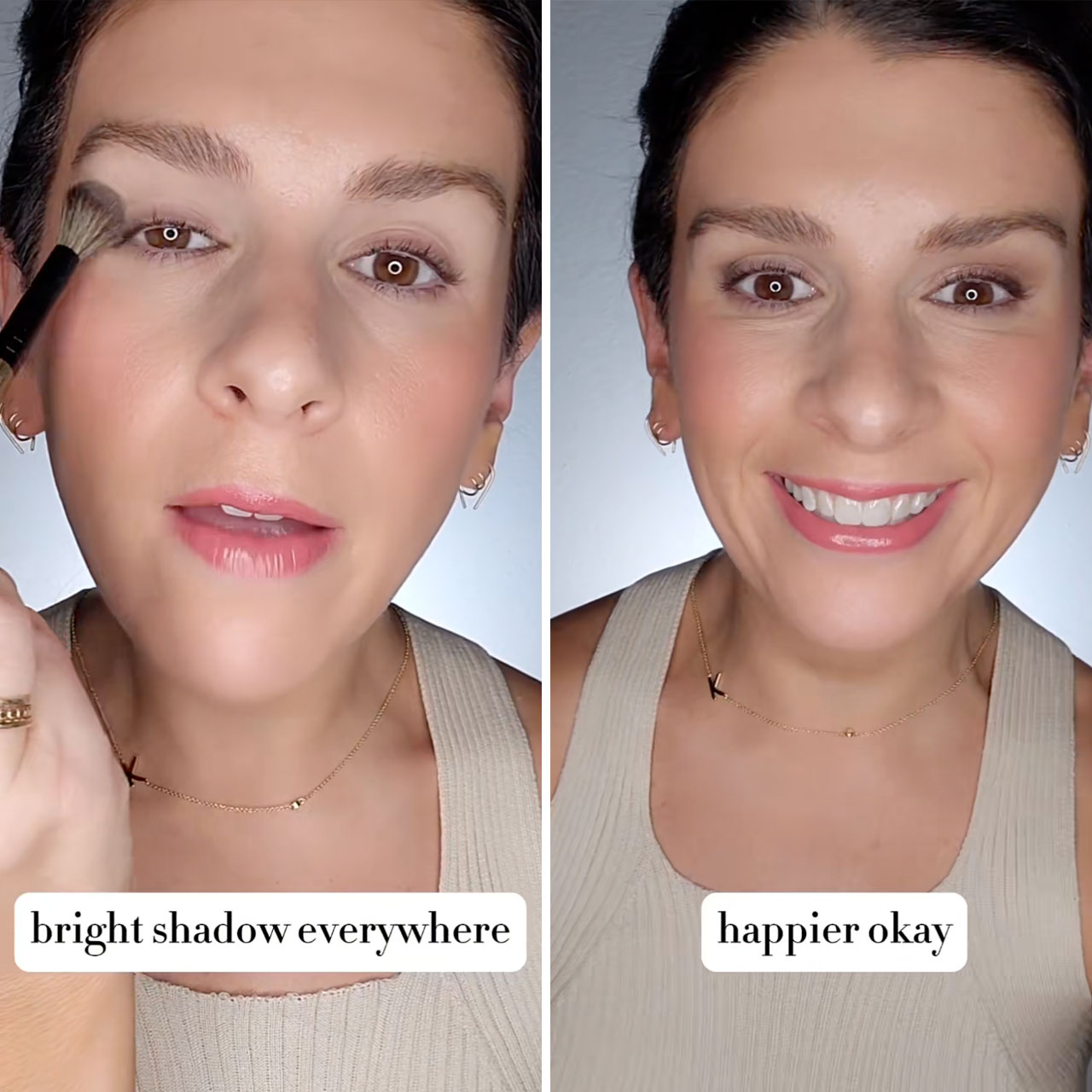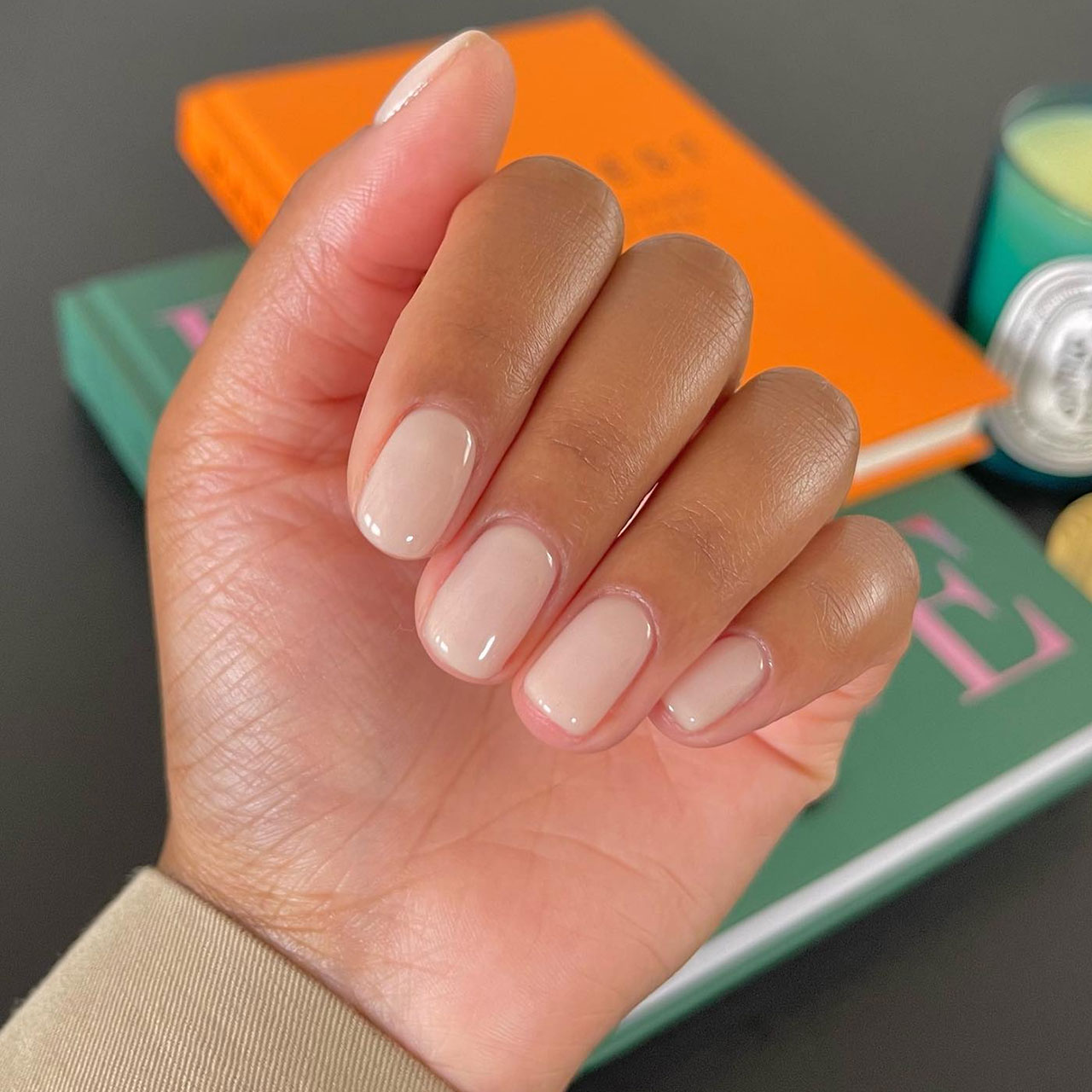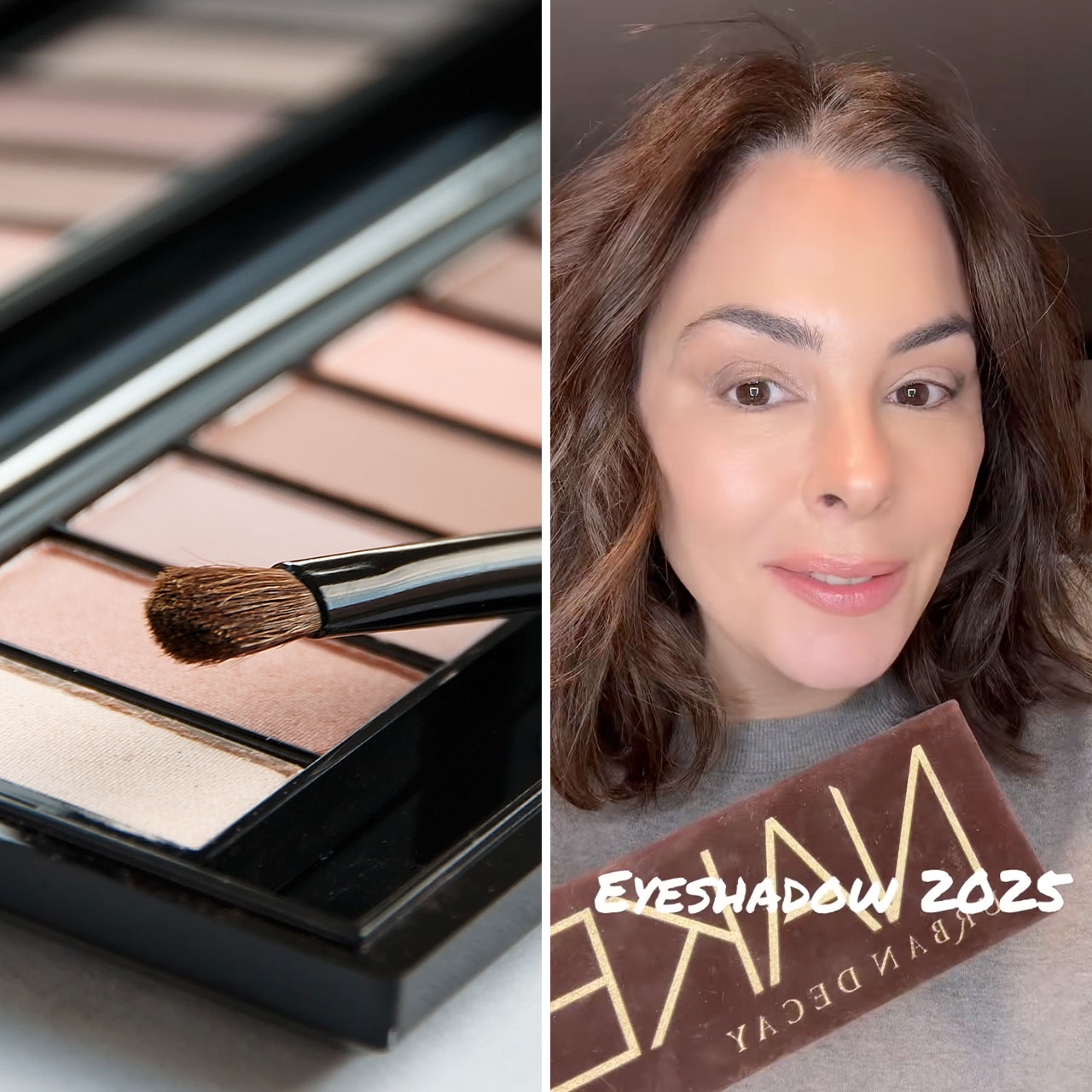While cleansing is an essential part of any healthy skincare routine and aging itself is natural and normal, there are ingredients in common cleansers that could dry out aging skin even more and lead to additional wrinkling. We checked in with skincare experts and estheticians Denise Cartwright, founder of the CRUDE skincare brand and Aida Bicaj, celebrity facialist and spa boutique owner to learn more about ingredients to avoid in any cleanser after 40 and go-to tips when looking for products that promote healthier aging and a timelessly youthful glow.

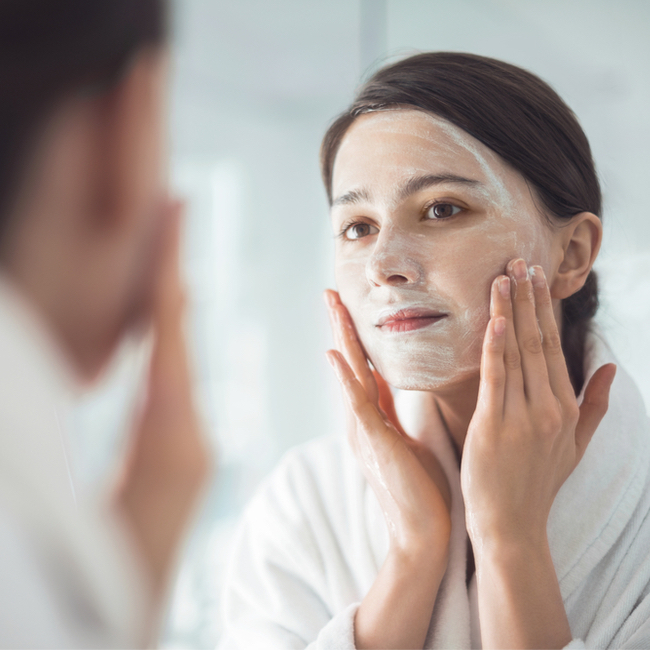
Cleanser Ingredients To Avoid On Aging Skin
When shopping at the drugstore for a daily/nightly cleanser specifically, Bicaj stresses that users with aging skin should look out for the following 4 ingredients: salicylic acid, retinoids, alcohol, and benzoyl peroxide as they can “age and dry out the skin.”
“While most of these ingredients, like retinoids, have a range of fantastic skincare qualities, they can be too harsh for dry skin,” Bicaj explains. The same goes for salicylic acid, she says. Additionally, Bicaj points out, while benzoyl peroxide can be great for treating acne, it can be too harsh on skin that's sensitive and can cause more dryness to the skin. “It is also important to avoid foamy cleansers and soaps, as this is how the skin starts to become dehydrated, as these types of products strip protective oils that your skin produces,” she continues. With age, those oils start to diminish, so by using these kinds of ingredients, Bicaj notes that “you are actually speeding up the aging process.”
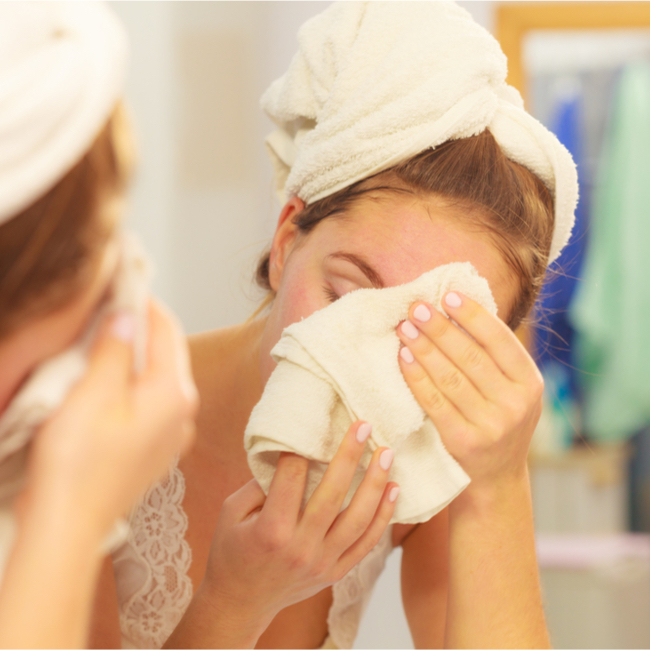
Cartwright adds that soap and detergent-based cleansers are “too harsh” for the skin. “Any product that strips your skin’s moisture barrier, disrupts its healthy flora, or chronically inflames the skin will likely increase long-term signs of exposure,” she says. Oftentimes “signs of aging,” like fine lines, Cartwright says, are actually signs of environmental exposure - to pollutants and irritants (which your skin’s barrier function protects you from) and inflammatory ingredients (which are often contained in ‘anti-aging’ beauty products).
She says that the best way to support your skin as you age is by supporting its “inherent protective and regenerative functions,” like its natural moisture barrier and microbiome. “These built-in protective systems keep your skin supple, moisturized, and protected from irritants and pathogenic bacteria,” Cartwright tells us. “I think cleansing is the most important factor in anyone’s skincare routine. It’s so important to cleanse the skin without stripping its moisture barrier or destroying its microbiome.”
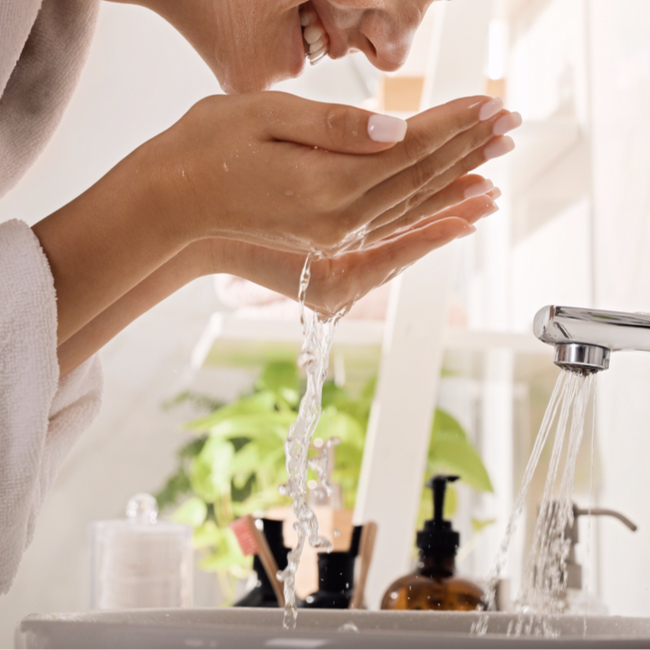
Ultimately, Bicaj and Cartwright note that any cleanser with salicylic acid, retinoids, alcohol, benzoyl peroxide as ingredients or one that is soap or detergent-based or foamy should be avoided over 40. While visiting your dermatologist or a skincare expert is the best way to know what works for you personally, Cartwright concludes that a microbiome-friendly oil-cleanser for the face is a better alternative.



